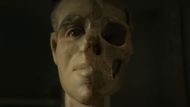HBO's The Mortician uncovers one of the most unsettling parts of trust placed in morticians in contemporary American culture. When trust is highly valued, few professions stand out as Funeral Directors. Society regards them as the custodians of the dead and their grieving family’s mental health. But what happens when that trust is not heavily fractured, but beyond redemption?
The docuseries explores the dark saga of David Wayne Sconce, a man who turned an unremarkable California funeral home into a grotesque empire of greed, desecration, and deception. Using chilling interviews, haunting footage, and eyewitness accounts, The Mortician helps viewers comprehend the horrifying consequences of unfettered ambition and utter neglect for human decency.
The series is directed by Joshua Rofé, a true crime documentarian. Unlike other series, Rofé focuses on the facts, letting the victims tell their stories, which in turn removes the sensationalism. He sheds light not only on the case of brutal scamming but also on the horrifying reality of how easy it is for malignant evil to hide behind a professional facade, religion, or curtains of civility.
From college athlete to cremation kingpin: The rise of The Mortician

Becoming a villain was never part of the plan for David Sconce. He used to be an aspiring football player at Azusa Pacific College in the early 1980s, dreaming about going pro. Yet, an unfortunate ligament injury cut short his ambitions.
Sconce, as it turns out, came back to the family business—the Lamb Funeral Home located in Pasadena, built by his great-grandfather. Lamb Funeral Home’s Cold Coast Cremation Inc. follows a radically invasive approach that turns peaceful small-town mortuaries into a booming cremation center.
Offering prices well below market value, Sconce cornered the market—but at a horrifying cost. Former employees report he routinely burned upwards of fifteen bodies simultaneously in industrial kilns designed for individual remains. Jewelry was stripped, bones tendered for ease, and grieving families were given urns containing thick piles of strangers’ remains. This was not mere negligence; it was systematic, calculated desecration. Yet for years, no one put a stop to him.
The smell of suspicion: Exposure and justice delayed

In 1987, the story changed when a WWII veteran (who was tormented by the memories of Auschwitz) caught the burning flesh wafting from the crematorium located near his home.
His accounting apprehensively unleashed an investigation that exposed a full-scale human cutting business beneath an innocent façade. The human ashes in garbage, branded indentured servitude. And as Sconce’s decaying, abused bodies lay sprawled helplessly, truth proved just as marred.
Sconce would be the single justified scapegoat. After accumulating over sixty accounts, he spent only a few years incarcerated. He was freed prematurely, in ’91, while the ‘psychological wounds’ of the families he duped were barely inflamed. Even worse for these survivors, Sconce’s parents were set free too without charge.
All this while Sconce fell into a hasty cycle of parole breaches, arrest, and cross-conspiracy murder schemes—a hellish loop. His lightened sentence on the grounds is an unsettling badge of honor for the surviving families who witness the man effortlessly maneuver through destiny’s odds while legally sanctioned.
The Mortician is not your typical true crime series. It is an examination of the consequences of power left unregulated, an unchecked sense of professionalism, and a vendetta against humanity in the pursuit of profit. Like the greatest horror tales, HBO compels us to face the horrifying truth behind what ought to be sacred processes - as we witness the horrific reality is that the scariest monsters wear suits and Corvettes.
